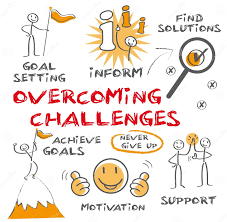Articles and Trivia
Write an articleCoping with Failures and Setbacks: Turning Challenges into Opportunities

Coping with Failures and Setbacks: Turning Challenges into Opportunities
Failure is an inevitable part of life. Whether it’s a missed opportunity, a personal setback, or a professional disappointment, everyone faces failures at some point. While failures can be disheartening, they also offer valuable lessons and opportunities for growth. The ability to cope with setbacks effectively determines how well we bounce back and move forward.
Understanding Failure
Failure is not a reflection of your worth or potential; it is simply an outcome that didn’t go as planned. Successful people across the world have encountered numerous failures before achieving their goals. Recognizing that failure is a normal part of life helps reduce its emotional impact and fosters resilience.
Emotional Impact of Failure
Experiencing failure can trigger feelings of disappointment, frustration, and self-doubt. It’s essential to acknowledge these emotions rather than suppress them. By accepting how you feel, you give yourself the space to heal and reflect.
Strategies to Cope with Failures and Setbacks
1. Embrace a Growth Mindset
View failures as learning opportunities rather than permanent setbacks. A growth mindset helps you see mistakes as part of the journey toward improvement. Ask yourself: "What can I learn from this experience?"
2. Reframe the Situation
Shift your perspective by focusing on what you gained rather than what you lost. Each setback provides insight that can guide future decisions. Instead of dwelling on the problem, focus on solutions and actionable steps.
3. Practice Self-Compassion
Be kind to yourself during difficult times. Avoid harsh self-criticism and treat yourself with the same understanding you would offer a friend. Remind yourself that no one is perfect, and setbacks are a part of every success story.
4. Set Realistic Goals
Break down your long-term goals into smaller, achievable steps. This approach allows you to track progress, build confidence, and reduce the fear of future failures. Celebrate small wins along the way to maintain motivation.
5. Seek Support
Talking to a mentor, friend, or counselor can provide valuable perspectives and emotional support. Sharing your experiences can lighten the emotional burden and open you up to new insights.
6. Reflect and Adjust
Take time to evaluate what went wrong and identify areas for improvement. Use this reflection to adjust your strategies and approaches. Continuous learning from failure strengthens your ability to navigate future challenges.
7. Stay Resilient and Persistent
Resilience is the ability to recover from setbacks and keep moving forward. Cultivate habits that foster resilience, such as mindfulness, regular exercise, and maintaining a positive outlook. Persistence, combined with adaptability, is key to long-term success.
Famous Examples of Overcoming Failure
Thomas Edison failed over a thousand times before successfully inventing the light bulb.
J.K. Rowling faced numerous rejections before "Harry Potter" became a global phenomenon.
Michael Jordan was cut from his high school basketball team but went on to become one of the greatest athletes in history.
These stories remind us that failure is not the end—it is a stepping stone to success.
Conclusion
Coping with failures and setbacks requires patience, self-reflection, and resilience. By adopting a growth mindset, practicing self-compassion, and staying persistent, you can transform failures into opportunities for personal and professional growth. Remember, every failure brings you one step closer to success—embrace the journey and keep moving forward.
"Success is not final, failure is not fatal: It is the courage to continue that counts.


